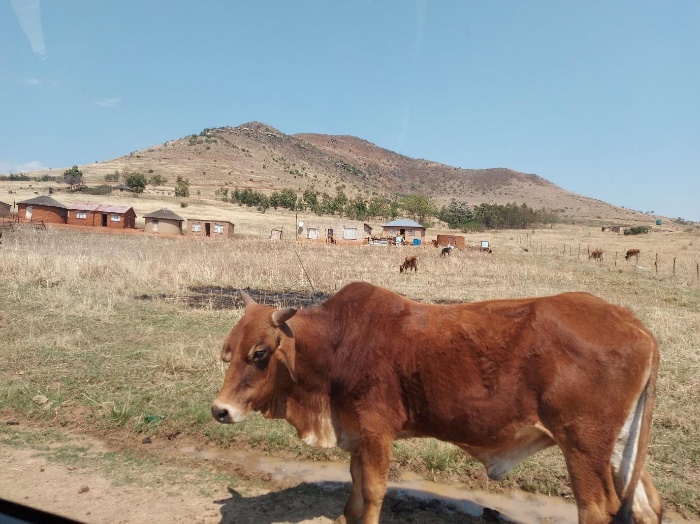A dry but yet scenic drive on a mixture of tar and gravel roads brought UNFPA team to Ukhahlamba, uThukela District in the Province of KwaZulu-Natal. The purpose of the visit was to participate in the dialogue on forced and early marriages (known as Ukuthwala) in the area. The dialogue, led by KwaZulu-Natal Christian Council (KZNCC) in partnership with UNFPA, was also attended by the local leadership and representation from the Provincial Departments of Social Development and Department of Education.
The activity took place in the context of UNFPA-UNICEF Joint Programme titled “Empowering Women and Girls to Realize their SRHR in South Africa”. The purpose of the dialogue was to engage religious and local actors in their efforts to increase community information and access to SRHR, HIV and GBV prevention and services, as committed by South Africa in the ICPD Programme of Action and the Nairobi Commitments. The dialogue helped unearth the myths of forced and early marriage: overall the women and men present agreed that forced and early marriage robs a young girl of her education, her career and better prospects of life. It was also discussed that it is a criminal activity unrelated and not associated with culture. A number of women shared their experiences of being forced into marriage at very tender ages, there were also report of young girls who have recently escaped this practice, whilst others were not able to.
The community members appreciated the open discussion on the increased need for safety for women and young girls in the area. They welcomed the discussion and the assistance from local and provincial government and UNFPA in capacitating the women and men to become the advocates for change in their community. The women expressed their weariness of living in fear, the fear of being raped or having their young girls abducted and forced into marriage and are now prepared to stand together to bring about the change in their own community. Traditional members of the royal household, confirmed support to address the violence against women and young girls in the area, encouraging the women to speak out and report these cases.
As an immediate follow up, the KZN Department of Social Development, the uThukela Department of Health and KZNCC, are in contact with local leadership in the area to connect women and girls to nearby health and psychosocial services and support.

Bride price or 'lobola' is usually paid in live cows or money from the groom's family and is still common today.

